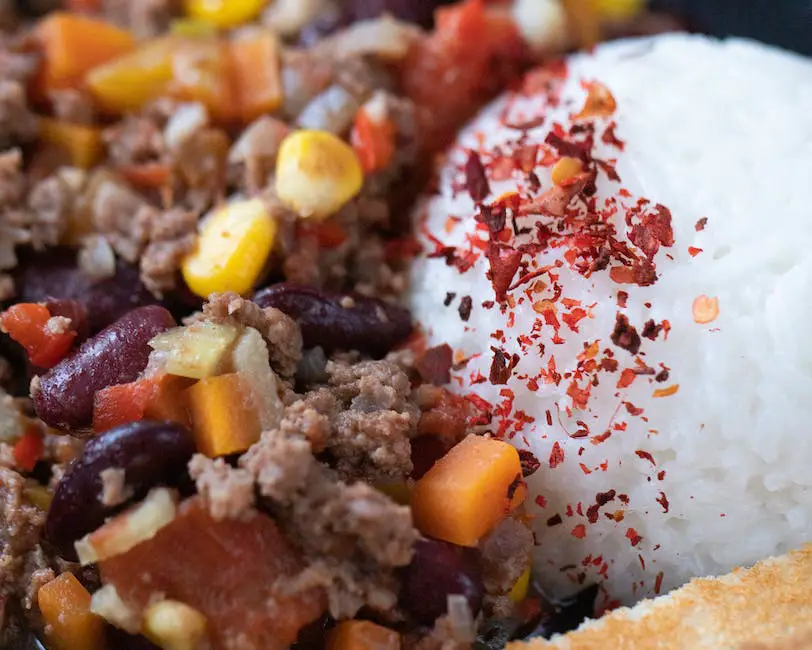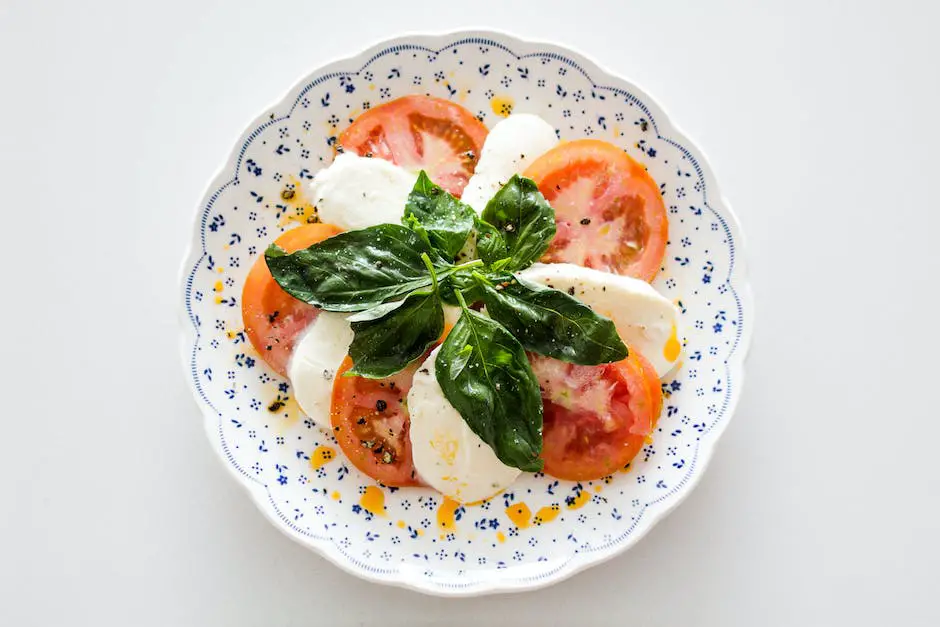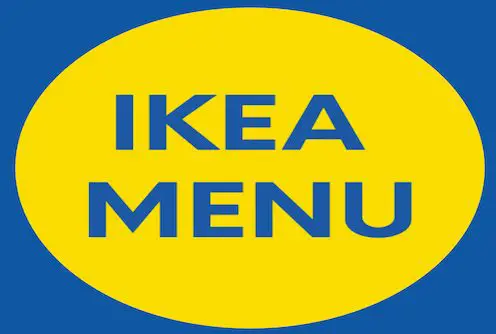As a global furniture giant renowned for its convenient, trendy, and affordable selections, IKEA has recently made significant strides in the culinary field, particularly concerning vegetarian cuisine. Embracing the ongoing lean towards healthy, ethical, and sustainable dietary choices, IKEA’s outlets now brimming with a smorgasbord of vegetarian delights. From reinventing classics like their infamous hot dogs and meatballs to tantalizing salads and desserts, IKEA is boldly heralding a new age in the fast food industry. This piece provides an in-depth exploration of IKEA’s vegetarian menu, its nutritional implications, the company’s green sourcing policies, customer perception, and future implications in vegetarian fast food trends.
Overview of IKEA’s Vegetarian Menu
IKEA’s Ambitious Veggie Goals
As part of its commitment to sustainability, IKEA has been expanding its menu to include more vegetarian and vegan options. Considering the environmental footprint of food, IKEA aims to create a more sustainable and healthier food offer at an affordable price. As a result, much of IKEA’s recent food development has been focused on plant-based ingredients. Their goal is to make healthier and more sustainable eating easy, desirable, and affordable.
From Famous Meatballs to Plant Balls
Most famously known for its Swedish meatballs, IKEA has introduced a plant-based alternative known as the HUVUDROLL, or “Plant Balls”. These are designed to look and taste like meat but are made from plant-based ingredients like yellow pea protein, oats, potatoes, onion, and apple. IKEA’s plant-based meatballs come with a significantly smaller climate footprint, reducing carbon emissions by nearly 85% compared to the traditional meatball.
Veggie Hot Dogs and Beyond
In 2018, IKEA Food Services introduced a veggie hot dog at its bistros worldwide. This plant-based alternative to the traditional hot dog is made from a blend of kale, red lentils, carrots, and ginger. The veggie hot dog, served in a classic hot dog bun and topped with fried onions, pickled cabbage, and mustard, quickly became a customer favorite. More than 1 million veggie hot dogs have been sold since its introduction.
Fresh Salads and Wraps
In addition to hot meals, IKEA offers an array of salads and other fresh options suitable for vegetarians. Their GRÖNSAKSBULLAR Vegetable balls served with a side of bulgur wheat and a creamy spinach sauce is a favorite among many vegetarians. IKEA also offers a Veggie Wrap filled with red lentils, quinoa, carrots, kale, and broccoli, highlighting the focus on healthier and more substantial meal choices.
Desserts with a Twist
No meal is complete without dessert, and IKEA’s vegetarian menu does not skimp on sweet options. From vegan-friendly DAIM and ALMONDY almond cakes to their UTZ-certified chocolate bars, there are ample ways for vegetarians to satisfy their sweet tooth at the IKEA food court.
Adapting Traditional Swedish Recipes
One of the impressive parts about IKEA’s inclusion of more vegetarian and vegan items is how they’ve managed to keep their signature Swedish influence intact. The company prides itself on using traditional Swedish recipes and cooking methods whenever possible, with simple preparations that highlight the ingredients’ natural flavors.
Wrapping up, IKEA’s menu continues to evolve, boasting an increasing number of vegetarian and vegan offerings. This trend is indicative of not just the shifting dietary preferences of consumers, but also IKEA’s aspiration to contribute positively to the planet with sustainable practices.

Nutritional Value and Sustainability
Unpacking the Nutritional Benefits of IKEA’s Vegetarian Options
In response to the rise in popularity of plant-based diets, IKEA has committed itself to offering nutritiously balanced vegetarian options. At the heart of this endeavor are their veggie balls, known as GRÖNSAKSBULLAR. Packed with chickpeas, green peas, carrots, bell peppers, corn, and kale, this dish delivers a high fiber and low fat choice replete with crucial vitamins and minerals. Flipping the script on their iconic meatballs, IKEA released a plant-based ball, cleverly named HUVUDROLL. This meat alternative, encompassing peas, potatoes, apples, and oats, imitates the taste of the traditional meatball with just 4% of the climate footprint, offering a plateful of protein and dietary fiber alongside.
Following suit, IKEA rolled out their veggie hot dog, an exclusive blend of kale, red lentils, quinoa, onions, and carrots. They have claimed that each serving dishes up around 7g of protein, making this a potent source of plant-based proteins. The assortment of ingredients contributes to a high dietary fiber offering, loaded with essential vitamins and minerals, emphasizing IKEA’s commitment to balance flavor with nutritive value.
Sustainability and Ethical Sourcing at IKEA
IKEA is committed to sourcing ingredients for their vegetarian options in sustainable and ethical ways. The food items discussed earlier: the veggie balls, plant ball, and veggie hot dog, all employ this approach.
The GRÖNSAKSBULLAR (veggie balls) are not only beneficial for individual health but also for the planet. They require less energy, water, and produce fewer greenhouse gas emissions to produce, compared to their meat-based counterparts.
The HUVUDROLL, IKEA’s plant ball, has a much reduced climate footprint, equating to just a mere 4% of that of an average meatball. This is achieved by using plant-based ingredients that require less land, water, and produce fewer greenhouse gas emissions compared to livestock.
Finally, IKEA’s veggie hot dog has an approximate climate footprint that is seven times lower than the classic hot dog’s. Its production involves fewer resources and lower greenhouse gas emissions, making it an environmentally conscious choice.
IKEA’s commitment extends beyond their food menu. The company is dedicated to implementing more sustainable practices across their entire business, and aim to become “climate positive” by 2030. This sends a clear message that IKEA does not merely cater to the increasing vegetarian and vegan demand, but is also socially responsible and committed to sustainability at its core.
Vegetarian Choices at IKEA: Good Taste, Nutritional Value and Sustainability
IKEA’s vegetarian and vegan selections cater to more than just a specific diet. These dishes offer both balanced nutrition and sustainability, aligning well with IKEA’s commitment to ethical sourcing. Not only does this add another layer of consideration for customers’ health, but it also helps the environment. The combination of delicious taste, nutritional value, and environmental consideration in these plant-based meals cater to a broad array of customers, while maintaining IKEA’s strong focus on ethical practices.

Photo by sadrajavaheri on Unsplash
Customer Reviews and Receptions
Vegetarian Dishes at IKEA: Reviews and Feedback
The IKEA restaurant is often considered a must-visit spot for many patrons, including those who prefer vegetarian options. While the famous Swedish meatballs may be the first food item people associate with IKEA, the array of vegetarian alternatives is quite impressive and continues to expand. Vegetarian choices such as veggie balls, beetroot salads, and veggie dogs provide several alternatives to the regular menu.
Customer reactions to IKEA’s vegetarian menu are generally positive. The plant-based meatballs, properly referred to as “vegetable balls,” are often lauded for their pleasing taste and texture, as well as their eco-friendly edge. Online reviews frequently highlight a rich and hearty flavor that rivals the traditional meat version.
Nevertheless, some criticisms focused on IKEA’s vegetarian selection. The common grievance is the lack of innovative dishes or diverse vegetarian options outside of the vegetable balls and veggie dogs. Many customers have expressed a desire for more globally inspired vegetarian dishes or a broader variety of plant-based proteins, such as tofu or seitan.
Comparison to Other Food Chains
Compared to other similar food chains, IKEA appears to be increasingly competitive regarding vegetarian offerings. While fast-food giants like McDonald’s and Burger King also have vegetarian options, IKEA’s menu is generally perceived as healthier and more innovative, making use of a broader range of vegetables and grains.
Navigating through reviews, it’s rare to see complaints of cross-contamination—a common concern in fast food chains where vegetarian and non-vegetarian foods are often prepared in close quarters.
Vegetarian and Vegan Offerings at IKEA
IKEA has received generally favourable feedback from the vegetarian and vegan communities regarding its vegetarian food options. The retail giant made a considerate stride towards inclusivity and environmental sustainability with its introduction of plant-based meatballs, which has been praised by several vegan influencers and food enthusiasts.
That being said, IKEA’s use of dairy and eggs in many of their vegetarian offerings has been a point of contention for strict vegans who avoid all animal-based products. Despite offering several vegan products, IKEA’s vegan range is relatively narrow in comparison with the rest of its full menu.
As a final point, although IKEA has made commendable progress in diversifying its vegetarian offerings, reports from customers and food critics suggest that there is a scope for added creativity, especially in catering to the needs of the vegan community.

Future Vegetarian Food Initiatives At IKEA
Future Plant-Based Initiatives at IKEA
Aside from its widely recognized affordable and stylish home furnishings, IKEA is gradually making a mark as a trailblazer for environmentally sustainable food choices via its ever-growing vegetarian food options. The company aims to achieve a climate-positive status by 2030, and a major component of this initiative revolves around minimizing greenhouse gases through the introduction of more sustainable food choices.
Currently, IKEA’s food business is responsible for approximately 5% of its total greenhouse gas emissions. To address this, IKEA has committed to enhancing the proportion of plant-based items on its menu to 20% by 2022, working towards a final goal of 50% by 2025. This commitment will involve the crafting of new vegetarian recipes and expanding their existing assortment.
For instance, IKEA recently debuted a plant-based version of their traditional, well-loved meatballs. These eco-friendly alternatives, made from peas, oats, apples, and potatoes, aim to deliver the same flavourful experience as the original, but with a 96% lower carbon footprint.
In order to create these innovative offerings, IKEA collaborates with top-tier food visionaries and budding startups via the “Future Food District” initiative — an exploration platform dedicated to the revelations of fresh concepts in food production and consumption.
Impact of IKEA’s Vegetarian Menu on the Fast Food Industry
IKEA’s investment in vegetarian options is indicative of a larger trend in the fast food industry. While IKEA is primarily a retail giant, its approach to integrating sustainable, plant-based food in its menu is having a ripple effect across the fast food industry.
Many fast food chains, such as McDonald’s and Burger King, have also started incorporating more plant-based options in their menus in response to increasing consumer demand for healthier and more sustainable eating options.
IKEA’s ambitious goals in reducing its carbon footprint and promoting sustainability can set the pace for other restaurants and fast food chains when it comes to offering more diverse, environmentally friendly menus.
Potential Shape of Vegetarian Food Trends in the Coming Years
The integration of vegetarian food into IKEA’s menu could signify a growing acceptance and demand for plant-based eating in society. This shift reflects a broader cultural change in attitudes towards meat consumption and its environmental impact.
With IKEA leading the charge in making plant-based foods more accessible and affordable, it’s conceivable other large corporations and fast food chains will follow suit. This could potentially result in vegetarian and vegan menu options no longer being considered alternative or niche, but becoming mainstream.
In the coming years, the vegetarian food sector is likely to further expand and diversify, influenced by such multinational corporations as IKEA that are committed to reducing their environmental impact. As a result, consumers can expect more innovative, tasty, and sustainable vegetarian options on fast food menus.

With a steadily expanding vegetarian menu, IKEA continues to prioritize not only taste but also nutrition, sustainability, and ethical considerations. The positive customer reviews unveil a growing acceptance and demand for more plant-based food options. It is commendable how IKEA is redefining fast food, by serving dishes that are not just delicious but also contribute to personal health and the well-being of our planet. Looking ahead, the energy and innovation IKEA pours into elevating their vegetarian offerings hint at an exciting vegetarian-friendly culinary future. Notably, IKEA’s initiatives are set to influence larger fast food industry trends, echoing the importance of plant-based menus in the global food scene.


